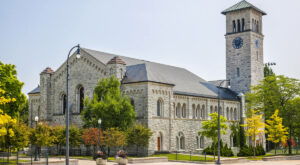British Columbia is introducing new policing standards aimed at improving the response to sexual assault cases and supporting survivors during investigations. The changes, which will be effective from 2024, include increased oversight by senior officers in sexual assault cases, closer collaboration between investigating officers and victim service workers, and involvement of community-based supports such as sexual assault centers and health services. Police departments will also conduct reviews of closed cases to identify mistakes and improve future investigations.
Advocates working with sexual assault survivors have welcomed the move but remain skeptical about its impact on the overall policing culture that has long contributed to survivors’ mistrust. Sexual assault survivor Aden Withers, who previously faced a troubling experience with the RCMP, believes that the new standards are merely a band-aid solution and do not address deeper systemic issues within police departments.
Another survivor, Harold Lock, filed a notice of civil claim against the Roman Catholic Archbishop of Vancouver, alleging sexual abuse by a priest in the 1950s. He hopes that the changes will bring more accountability and justice for survivors like him. However, some advocates are concerned about whether police agencies will effectively implement the new guidelines due to their problematic organizational culture.
The new standards aim to address the under-reporting of sexual assault cases, as many survivors fear not being believed or trust in the police. To promote better oversight, community agencies will be involved in reviewing closed sexual assault cases, offering an external perspective and feedback. While the changes are seen as a step forward, some advocates also emphasize the importance of redirecting funding from police departments to community groups and health agencies that can provide more comprehensive support and counselling for survivors.
The introduction of these standards comes amid a surge in sexual assaults in major B.C. cities in recent years. Victoria witnessed a significant increase in reported sexual assaults in 2021 compared to 2019, reflecting a disturbing trend of sexualized and gender-based violence during the pandemic. To address these issues, the province has allocated stable, annual funding to 68 new sexual assault programs and is inviting service providers to bid for running regional sexual assault centers in different cities, featuring specialized rooms for forensic medical exams and police interviews to create a more survivor-friendly environment.







